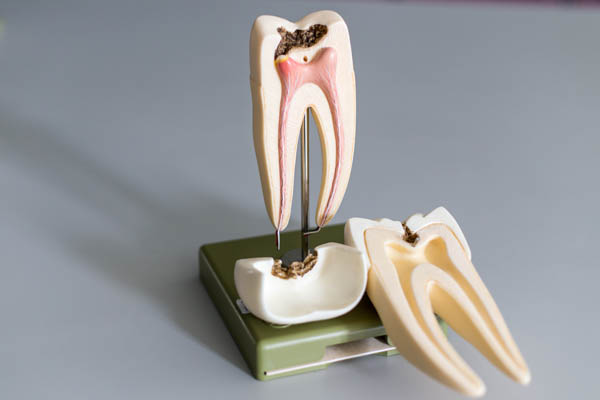The FAQs of Root Canal Treatment

Getting a root canal is a frightening event for some people. Of all the work dentists can do for you and your oral health, this one is among the procedures that cause the most anxiety. If you have fears about this procedure, it is helpful to learn more about it and what happens. As you understand this treatment, you will see how helpful it can be. You can then go into the process feeling more comfortable and at ease.
Avoiding root canal procedures
Maintaining good oral health is critical for a person’s overall wellness. People who want to stay far away from this treatment can do their part to keep their teeth healthy and strong. The most effective way to do this is to brush at least twice a day. Spending enough time brushing properly each day will reduce the risk of cavities and infections. Daily flossing can also minimize a person’s chances of getting cavities and gum disease. Seeing the dentist at least twice a year will also promote good health.
Why do dentists do root canals?
Regular dental appointments focus on preventive measures, such as cleaning teeth and examining the patient to identify problems. The dentist will also treat patients who have issues such as decay and disease in the mouth. When a person has an infection in the tooth or severe decay, a filling may not be enough to correct the condition. A root canal removes the decay or infection, cleans out the tooth, and prevents further spreading of these issues.
What happens in a root canal treatment?
For some people, hearing the term “root canal” is enough to make them nervous. But many people do not even understand what takes place with this procedure. To perform one, the dentist will first take X-rays to confirm the presence of decay or infections. Then, the dentist prepares the person for the procedure, beginning with numbing the patient with a local anesthetic.
The dentist then places a rubber dam in the tooth to keep it dry. After drilling into the tooth, the dentist reaches the pulp, a chamber that houses vessels and nerves. The dentist removes this and cleans and flushes the canals. Medication may also be used to treat the infection. The dentist will then seal the tooth and cover it with a crown.
Is it painful?
Root canals have a reputation for being painful and uncomfortable. In reality, the procedure has little pain. The use of anesthesia will make the patient comfortable during the process. There can be some discomfort for a few hours after the treatment.
How effective is it?
A root canal is a good way to treat infections and decay. The tooth may be sensitive for a few days afterward. The process is successful and should relieve any pain the person had. The crown covering the tooth will be natural-looking and durable.
Nothing to fear
Do not put off a visit to the dentist’s office because you are worried about a root canal. The pain of having a large cavity or an abscessed tooth is more significant than anything you will experience in the dental chair. Make an appointment today. You can have the relief you need in your tooth.
Request an appointment here: https://gurzfamilydental.com or call Gurz Family Dental at (909) 740-8288 for an appointment in our Fontana office.
Check out what others are saying about our dental services on Yelp: Root Canal Treatment in Fontana, CA.
Recent Posts
Looking for information on common root canal symptoms? There are many symptoms that may appear when someone is in need of root canal therapy. When it is determined that someone needs to undergo a root canal to save a tooth, a general dentist can typically perform the procedure.Understanding symptoms associated with the need for a…
A root canal is a dental procedure that can save an infected, damaged or severely decayed tooth from becoming lost. Root canal therapy is often necessary when other treatment options are not an option. It is important to know the signs that a root canal is necessary to ensure the long-term health of the tooth. When…
Preventive dentistry aims to keep the mouth healthy by preventing problems rather than waiting to fill a cavity when the patient feels pain or only addressing enamel erosion after teeth become sensitive. These services may include a deep cleaning of the teeth and other treatments that can only be performed by a licensed dentist.Many patients…
Dentists have long recognized an oral health connection to overall health. The body’s systems are interrelated and affect one another. Long-term dental problems impact the immune system and other metabolic functions. It is the view of the American Dental Association that infections often enter the body through the mouth.A long-term infection in the gum taxes…


